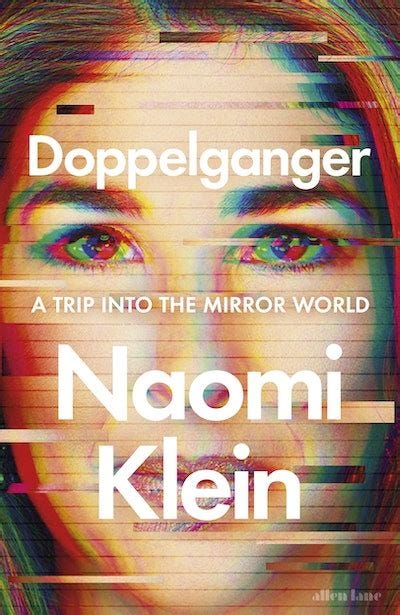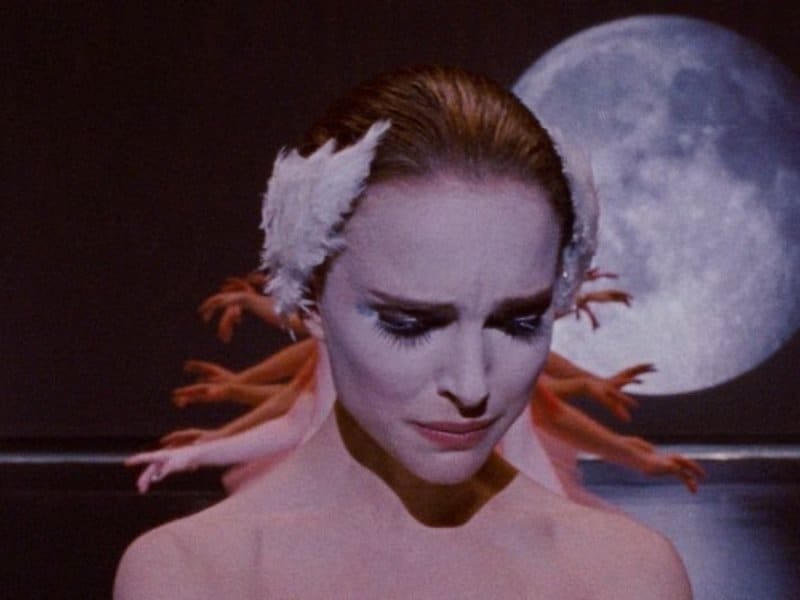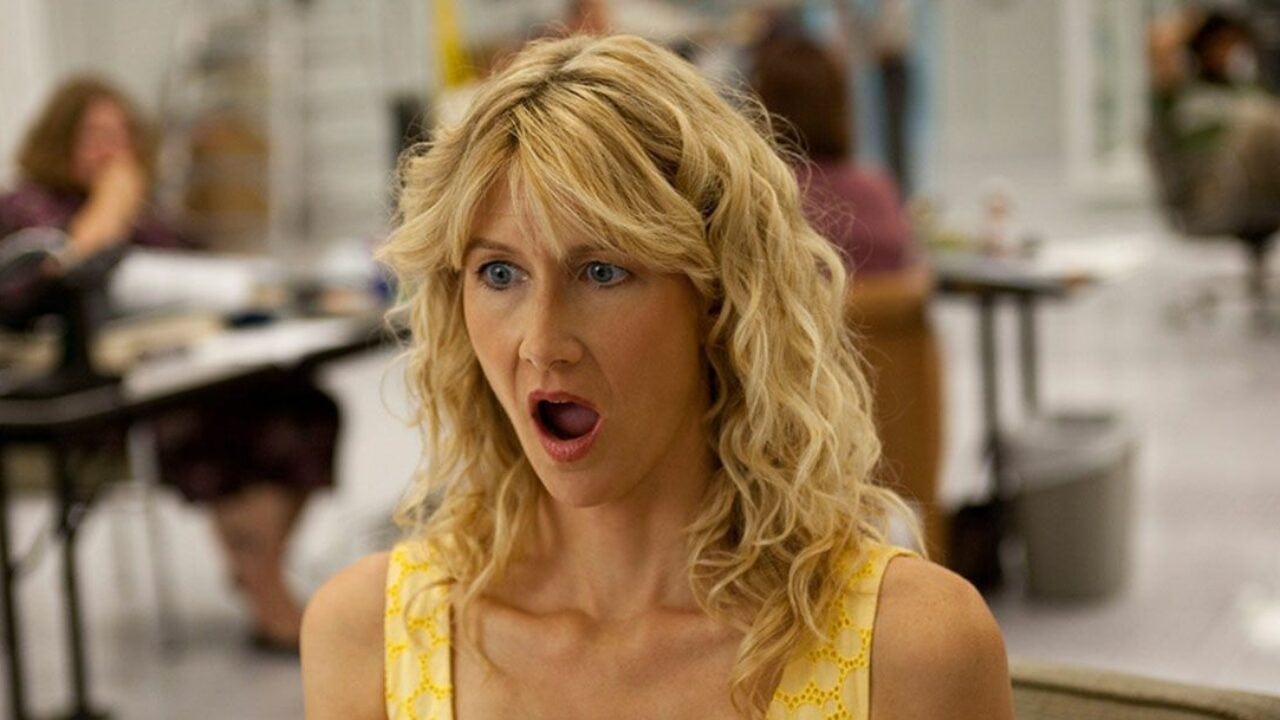Facing our mirrors and the duplicity in ourselves
The Doppelgänger
I'm constantly fighting my expectations of any outcome. What I hope this text will be like, how many subscribers I will have, and how successful I will be as a writer. Or simple things, such as, will my partner clean the dishes today or just go straight to work? Will Belgium's constant and cold rain let me swim today?
Not having expectations, or not clinging too strongly to them is basically what being adaptable is. Whenever something doesn't work out as planned, you skillfully turn in another direction with a smile on your face and without missing a step. I wrote about this before, and I still think being adaptable is the single most critical skill you could have today in such a crazy fast-paced world. Everything changes constantly. If you are stuck holding on to your dear life to how you want things to be, you are, well…stuck.
Expectations live solely in our heads. We create an image of how we want things to turn out. This image can be a mirror; when more pervasive, it is a perfected copy of ourselves or others.
Naomi Klein's book Doppelganger shows many examples of how we create this double to compare ourselves to. Our flawless online copy on social media, or even the fit version of ourselves we imagine when we are constantly dieting, or any other improved version of ourselves that haunts us when we lay our heads on the pillow.
We can also do that to others around us. Naomi writes about her frustration at being the mother of an autistic child. Not because of her child, but because while searching for parent support groups, she found that most of them wanted their child to be as they expected them to be. What they imagined as a "normal” kid. Because of that, they sought a cure above all and looked for something or someone to blame. She, on the other hand, didn't have many expectations before having a baby. She found it more interesting to discover who her child actually was instead of looking for a mirror image of what she wanted.
That's just one of the many topics Naomi Klein skillfully weaves into Doppelganger, where she explores the many ways our societies create a mirror image of reality, often through what we want to see and not the real thing.
We create these online avatars or personal brands, which are sort of us, but not us. The problem with performing being a thing on a platform where countless other people are performing themselves as things is that we actually start to believe we aren't real, and that other people aren’t real. And if we aren't real, then all kinds of cruelties are possible. - Naomi Klein in an interview to The Esquire.
The Doppelganger
The main thread of the book is how the author has been constantly mistaken for Naomi Wolf, whom she defines as her doppelgänger. Both Naomis are around the same age, American-Jewish, and became famous through their non-fiction bestsellers, No Logo and The Beauty Myth. As Naomi Wolf became more and more an active voice for misinformation and the right, Naomi Klein found herself being constantly tagged on Twitter as if she were the one spreading disinformation, and she even faced offline situations in which people mistook both authors.
Klein followed closely how Naomi Wolf, after rising to fame in the ‘90s with her book The Beauty Myth and even being part of the Democratic Party, has become, nowadays, someone extremely active in US right circles, being featured multiple times on Steven Bannon's podcast. That made her obsess about how Naomi Wolf transformed and how what she calls "the mirror world” works. It is a place where the far right has used words such as fascism and the Holocaust when talking about vaccination mandates and changed the minds of many, from yoga teachers to union leaders.
You wouldn't imagine someone writing a whole book about being mistaken for someone else, but this is just the springboard she uses. Naomi writes about a myriad of topics related to our modern world while still making it cohesive. She transitions from one topic to the next with enviable ease.
The book is not about my doppelgänger; my doppelgänger is just the white rabbit leading me down the rabbit hole. It's very much about what I find down there, who else I find down there, and what it says about us. - Naomi Klein
Without romanticizing those who adhere to conspiracy theories, Doppelganger strives to understand more and condemn less. Klein argues that simply condemning and presenting facts is not a good enough solution to our current division. The power of the “mirror world” is precisely that it already has multiple "facts” and enemies of its own. The book offers little hope for the future. However, if there is any hope, it's the fact that collective self-reflection—through historical knowledge and organizing—offers political resources that solitary self-reflection never will. Klein’s ultimate message is to log off and organize.
Upon reading it, I was forced to consider what we owe each other, how to bridge this hyperindividualist world, and, in particular, how to manage my expectations in this new era. How do I blur the many mirror images of myself I try to create and live up to?
Doppelgänger literature shows that we may think we're confronting our doppelgänger, but in the end, we’re always confronting ourselves. What we’re not willing to look at is our own complicity in systems that are intimately connected with the genocides of the past, that are contributing our little bit of poison to the extinctions of the present and the future, that rely on Shadow Lands for our conveniences, our Amazon deliveries, our year-round fruit. Whatever it is, there is no them. We are in it. We are a part of it. - Naomi Klein
A small mea culpa
I have written about The Beauty Myth before. By then, I didn't know just how far Naomi Wolf had become someone dangerous. She changed her beliefs and, in a way, legitimized Steve Bannon as someone open to dialogue. She brought women, especially moms, to the right. She has also appropriated many phrases and words from the racial and civil rights movements to spread conspiracy theories, misinformation, and hatred.
It's always helpful to learn more about the authors we read and other perspectives on them. I don't regret reading The Beauty Myth or writing about it. However, I certainly don't endorse Naomi Wolf now, and I think there are probably better feminist books on this topic to consider.
There are many critics of The Beauty Myth in Doppelganger. Maybe the main one is that the increase in beauty procedures and beauty standards is more connected to an increase in hyper-individualism and overconsumption than a simple backslash to second-wave feminism, as Naomi Wolf claims.
I think that's also the case. Although women have to adhere to far higher beauty standards than men (because of patriarchy, duh), it's mainly the cult of self-improvement that leads to such dedication to our appearances. In an uncontrollable world like ours, sometimes the only thing we can work on and see direct, quick results from is our bodies. It's maybe the "easiest" thing we can change about ourselves. By bombarding us with perfect images, social media, and media in general, sell products. It prays on our insecurities and desires. It's not difficult to understand why we are all obsessed with our appearances.
Fighting your fight
It's not easy getting out of the mirror world or fighting our internalized individualistic views about everything. It's difficult not to think we are special and at the center of the world, and that the world owes us something. We are constantly in our heads focused on our own goals, and maybe that's one of the problems.
I do think we live in a culture where the self takes up too much space, and given the scale of the crises we are up against and the fact that we will only have a hope of doing anything about it if we can band together and organize ourselves into political constituencies, the labor of perfecting, optimizing, and performing the self really does rob necessary hours in the day when we might be doing things with other people. - Naomi Klein
As a result of reading The Doppelganger after Hospicing Modernity, I have cemented this notion that we should be more collective and not see ourselves as unique entities. There are other people like us all around, all of us trying to grasp how to be in this modern world, where the things we try to suppress, such as colonialism, enslavement, and ecosystem collapse, continue to rise, no matter how much we look the other way. These and many more issues are at the heart of conspiracy theories, too. They are just packaged differently. There is certainly an overruling elite deciding everything about the world we live in, but they are not reptilians drinking children's blood.
We gain when we better understand that we are all feeling the collapse around us, the struggle to simply live a healthy life and that we are having all our energy squeezed by so many different forces. The differences are in the narratives we are being offered.
The Doppelganger delved deep and gave a framework to understand the state of the world better. Reading and talking about it may already be a small step. It's a challenge not to get tired or discouraged by all the problems of the world, as I know I do all the time. For now, writing this review and focusing on what I can do in my life will have to do.
When there’s a clear goal across the board, like raises or benefits, the ability to be in those uncomfortable coalitions becomes more possible. Whereas if all you’re doing is sharing opinions on social media, it isn't clear what the goal is at all. If you don’t know what the point of the whole thing is, your differences are going to take you down. But if the point is clear and the strategy is clear, then your tolerance level for difference rises, because you understand why you're tolerating it. If you don't have a goal, then why tolerate anything? - Naomi Klein
The Doppelganger: A trip into the mirror world by Naomi Klein
Not sure what else to say about this book other than go read it. If you enjoy non-fiction and political topics this book is certainly for you. I listened to an audio-book version, narrated by Naomi Klein herself. It's pretty good and feels like I long, interesting podcast.
Black Swam (2010)
In the intense psychological thriller, Black Swan, ballet dancer Nina Sayers (Natalie Portman) finds herself in a high-stakes race for the lead role in Tchaikovsky's Swan Lake. She grapples with her demanding director Thomas Leroy (Vincent Cassel) and the arrival of rival ballerina Lily (Mila Kunis). As pressures mount, Nina's grip on reality begins to slip. She is fighting two doppelgangers, Lily and a darker version of herself.
Directed by Darren Aronofsky, this film earned Portman an Academy Award for Best Actress. A vivid exploration of obsession and perfection, Black Swan is a cinematic tour de force.
Enlightened (HBO)
With the success of Mike White’s satirical dark comedy The White Lotus, now seems like the perfect time to remind everyone that his earlier show, the brilliant, often poetic, but short-lived HBO series Enlightened, is quite something. Although it's from 2013, I just discovered this show recently.
Co-created by White and Laura Dern, who also stars as the show’s lead character, Enlightened has a relatively simple premise. A divorced woman who suffers a career breakdown and wants to live a better enlightened life. She can be quite annoying and clueless but we can't help to also sympathize and see ourselves in the character while she grasps with how awful and stupid corporations and work life can be.











Looking forward to listening to Doppelgänger on audiobook on an upcoming road trip! And given that I’m still missing White Lotus, I should give Enlightened a try. Thanks!
jeepers, must syuck to feel so powerkless and squeezed. why nit turn off the boob tube and go vpunteer for a few hiurs? Birdwatch. Make cookies and stuff them into your pie hole until yiu ouke.